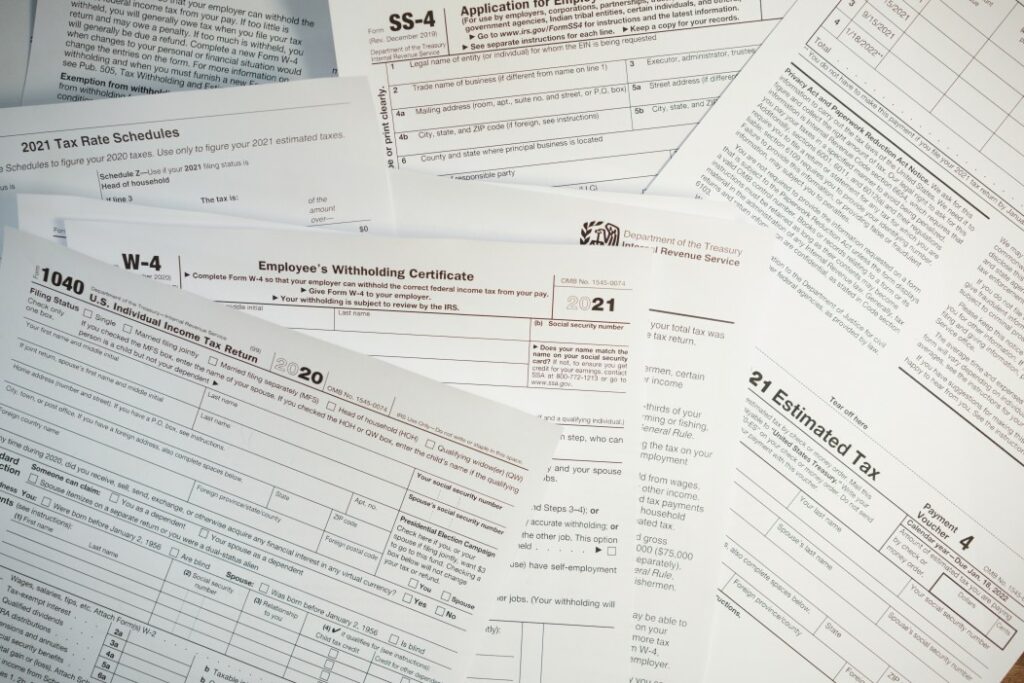Novation in real estate refers to voiding an existing contract and replacing it with a new one with the same or close economic value. This new agreement incorporates all the advantages, obligations, and liabilities described before.
It is crucial in real estate transactions when contractual terms are renegotiated. More than verbal agreements or striking out certain words from an existing contract is required, as the new contract must be written and signed by all parties.
This article will discuss furthermore more about "what is novation in real estate?"
Any time a new one replaces an old contract or legal obligation with the same or close economic worth, this is called an ovation.
Novation agreement in real estate allows the advantages and responsibilities of an initial contract party to be transferred to a new party that was not initially included in the agreement.
Nomination is the transfer of one party's rights and obligations to another with the approval of all three parties, and it is also known as the transfer of rights and duties.
For example, suppose a farmer promises to provide a grocery store with 100 tomatoes every week.
The legal definition of Novation is replacing one obligation for another by mutual agreement, with or without a change in the parties, intending to terminate the previous duty.
There is no proof that the contract was transferred or that a novation occurred.
A novated contract has been voided and ultimately replaced with a new one. The new agreement incorporates all the advantages, obligations, and liabilities described before.
Novation is important because anytime a contractual term or element is renegotiated, a new contract must always be written out and signed by all parties concerned, much more so when dealing with something as complicated and valuable as a real estate transaction.
Verbal agreements will not suffice, and neither would striking out certain words or phrases from an existing legal contract.
It guarantees that when a term is renegotiated, everyone has access to the new contract (which can be frequent for real estate). For instance, parties may differ on the purchase price, the mortgage period, the responsibilities or financial obligations, etc.
Apart from real estate, Novation is often used in financial contracts, commercial contracts, and any other situation in which legal wording is critical. The most significant value of Novation is the nullification of previous contract versions.
Without Novation, previous copies of real estate or other contracts may be utilized in court to resolve disputes about ownership, pricing, and other issues.

Transferring a lease from one party to another may result in a real estate novation. An initial lessee may assign their one-year rental agreement with the landlord to another lessee if they desire to end their lease early, for example, after six months.
It is possible for a third party—the new lessee—to assume all of the obligations under a lease contract and relieve the original contractual party of their financial and legal obligations with the landlord's permission.
In this scenario, Albert purchased a $5,000 ring from Simons on credit, which he intends to pay off in the following twelve months. A medical emergency occurs before Albert can pay his first monthly payment, and he is left scrambling for funds to pay the amount.
As a result, Albert decides to sell the ring to Judy under the same conditions as Simon did. While Albert wants to get out of the deal as quickly as possible, he is legally obligated to Simon and Judy.
As a result, Albert chooses to fulfill his financial obligation by negotiating a novation with Simon and Judy. By signing the novation agreement, the parties agree to engage in a contract in which Judy assumes all of Albert's duties to Simon. She is now responsible for upholding Albert's previous commitments to Simon.
If both parties agree on the new conditions, the repayment schedule may be renegotiated under the novation agreement.
Real estate novation is also possible when a tenant transfers the lease term to another party. If the lease agreement is transferred to a third party, that entity will be responsible for collecting rent, repairing any damage to the property, and fulfilling any other responsibilities laid forth in the original lease agreement.
If the original lease contract is still in place, the parties may stick with it or try to negotiate a deal on its terms.

To better understand the term "novation," let's look at today's three most common types of Novation in real estate.
Since "verbal agreements" between buyer and seller are a terrible idea and just scratching out particular words or phrases in an existing legal contract is a simple method to generate misunderstanding, it's always suggested that Novation be used when changes are made.
The purpose of Novation in real estate is to safeguard all parties involved, and it is accomplished in three primary ways:
A standard novation happens when both parties to a transaction agree to a new contract and amend the document's provisions. Both parties then sign the new agreement.
An expromissio novation is required when transferring specific rights involves three parties. The parties in a transfer are the person making the transfer, the person receiving it, and the person receiving it. Each party must agree to new novation contract terms to continue the transaction.
A delegation novation is required when a new creditor assumes an existing creditor's advantages and contractual obligations. This effectively discharges the initial debtor from their financial responsibilities to the first creditor.
The delegated novation contract legally ties the new creditor to the debtor's obligations. The debtor repays the first creditor and then compensates the new creditor for the same amount.
If you've agreed to new conditions, you should novate your contract. It's not uncommon for buyers and sellers to have to alter the terms of their agreement at some point.
These potential problems are addressed in the text. When both parties agree to renegotiate, the previous contract is canceled.
Assuming all parties agree on the new terms, you may "novate" a contract. Although this phrase is unfamiliar to most of us, it is just a legal term for exchanging papers. A new contract is created by Novation. The parties have to get rid of the previous one. As a result of the new agreement, it could:
If the agreement's terms are altered, all parties must sign new papers. This covers money exchanges, time allowances, and the parties liable for the transactions. The previous agreement becomes null and void as soon as the new contract takes effect.

Using Novation in commercial and residential real estate transactions may be pretty beneficial, but it can also significantly prolong the process. When negotiating, it's essential to ensure that all sides get an opportunity to evaluate the latest papers.
Buying or selling a home for your personal use is a much simpler process. Getting everyone together for a refresher on the new terminology isn't tough.
For multi-party commercial real estate deals, Novation is a headache. In commercial real estate negotiations, the word "novation" is used to produce a new contract that may be signed by all parties involved if any changes are made to the old contract.
Commercial real estate transactions often include delegated novation agreements to ensure no one is taking on or illegally retaining past commitments. Buying commercial real estate may take longer if the buyer wants to maximize their investment and grasp all of the obligations that come with it.
That said, no real estate transaction should be rushed, and Novation ensures that everyone is satisfied at the time of closing and for years to come.
To avoid any future legal obligations arising from the original agreement, both parties must agree to sign the contract. Consequently, the new party has no legal standing to hold the original party liable for agreement-related responsibilities.
As part of their agreement, the parties also agree to cover each other's damages resulting from the other party's actions. A good illustration of this is the entering party's agreement to reimburse the outgoing party for any losses resulting from actions taken by the outgoing party.
Ultimately, real estate investors need to know when and how to employ Novation in real estate deals. Since contract terms and expectations change based on variables such as price discussions, inspection reports, and more, a note is almost certain to be utilized at least once during the acquisition or sale of any property.
All parties involved in real estate transactions may relax knowing that previous versions of real estate contracts won't give them legal issues in the future because of Novation.
All parties participating in a large-scale investment must be legally safeguarded. This is essential. Investors in real estate need to know when and how to use Novation to keep current information, negotiate financial obligations, and adequately protect themselves from legal risks in real estate deals.
Investors and sellers in the real estate market might enhance their experience by studying a few instances and understanding "what is novation in real estate?".
What is the meaning of a novation agreement?
Two contracting parties agree to allow for the replacement of another contractual party for one that has already been established.
Is there a distinction between novation and the term "assignment?"
Novation is different from assignment in that it transfers a party's rights and duties rather than only the rights of one party. The previous contract is canceled, and a new one is established between the new party and the original contract's surviving party.
What is the purpose of novation, and how is it applied?
In novation, a party's contractual duties and rights are transferred to another party. While a contract's benefits may be transmitted by assignment, a novation agreement is required if the parties want to share both the contract's advantages and obligations.
How does novation take place?
In the case of novation, a new contract is substituted for an old agreement that has been agreed upon by all of the parties involved. A wholly new contractual party is added to the existing contract and takes the rights and responsibilities of the original party.
Is a novation a termination?
Novation is separate from assignments, despite their similarity in the idea. Both rights and obligations may be transferred by novation; however, an assignment only permits the assignment of tasks without the recipient's consent. Contracts are not terminated when assigned, unlike when they are terminated in the original contract.
In the event of a novation, who bears the risk?
It's common in property law, for example, to transfer a lease to a new tenant via novation. After that, the new renter makes rent payments and is accountable for any damage to the property.
GCI is an abbreviation for gross commission income in real estate and refers to your overall earnings from commissions on rentals, purchases, and transactions.
As this is your total commission, it is the amount you will see before your brokerage begins deducting their half of the split, as well as any additional transaction or referral costs you owe. GCI is the most coveted commission in real estate.
It refers to the sum of money agreed upon by the seller to pay the agent or broker. Assume you are a seller who has agreed to pay a 6% commission. If the transaction totals $200,000, you should pay $12,000 to the agent or broker who negotiated the contract on your behalf.
Your GCI is effectively your primary "income" stream as a real estate professional. Gross commission income is the amount of money you get through commissions, not auxiliary services (such as staging or fees). If your gross commission income increases, you know you're on the correct Income; Idaho realtor Dawn Templeton said, GCI is important because it's a good indicator of your overall profitability. If your GCI is low, it means you're not earning enough commission income to cover your expenses. On the other hand, if your GCI is too high, it could mean you're overspending on marketing or other business expenses.
Real estate agents must carefully track their revenue. Revenue generation in the real estate industry can be highly variable. When you first begin, a sale may occur every couple of months.
Without revenue tracking, you risk not just overextending yourself, but also not knowing whether your firm is improving.
Additionally, transaction-related expenses like marketing, monthly brokerage fees, and taxes should be removed from the GCI. That is why it is critical that you track both your GCI and your expenses in order to ascertain your net income.
If you are not a math wizard, have no fear! Calculating GCI is straightforward. To calculate your gross commission income, you simply need to know the commission rate, the property's price, and the number of parties who share the commission. Here is a little demonstration of how it is calculated:
$500,000 is the purchase price of the home.
Commission on the buyer's side = 3%
2.5 percent commission on the seller's side
GCI = Price of Goods Sold x Commission Percentage
Therefore, if you represent the buyer, the gross commission would be $500,000 x 3%, or $15,000 in GCI.
If you represent the seller, the gross commission is $500,000 multiplied by 2.5 percent, which yields $12,500 in gross commission income (GCI).
When you assist someone in purchasing a home, you and your brokerage divide the gross commission. Therefore, if you have a 70/30 split with your broker, your broker will keep $4,500 (30% of $15,000) and you will receive $10,500 (70% of $15,000).
Your net commission income (NCI) would be $10,500, assuming no other transaction-related charges.

Because your real estate GCI is proportional to the number of transactions you complete each year, the only way to increase it is to execute more transactions.
This entails more and more effective prospecting for new clients to represent. Are you looking to boost your real estate GCI? Here are some of the top solutions available to you.
You wouldn't embark on a journey without first setting your GPS, would you? Similarly, you must establish a GCI goal in order to determine how many transactions you must complete in a given year.
Then, you can split that total down into monthly, weekly, and daily targets.
Calculate the percentage of GCI that is allocated to commission splits, brokerage fees, and personal transaction expenses such as marketing and transaction coordination.
Determine the GCI required to earn the desired amount of money. Calculate your average sale price and GCI for the previous year.
Divide your GCI target by your average GCI per transaction to determine the number of transactions you must execute in a year. Divide your annual GCI objective by 12 to determine the number of transactions required per month.
Analyze the prior year's marketing to ascertain the number of contacts or promotional activity necessary to secure each client.
This will assist you in determining the steps necessary to complete your transaction.
One of the most critical things you can do to enhance your real estate GCI is to manage your time more effectively.
This will ensure that you spend enough time each week on marketing and outreach to ensure a steady flow of potential leads and new clients throughout the year.
Time blocking as a real estate business can assist you in gaining greater control over the clock and the calendar. Schedule time for lead development and follow-up, as well as for other marketing methods such as content creation, social media administration, pop-bys, and involvement in community or small business organizations.
Consider the marketing strategies you've used to promote your firm, as well as the return on investment (ROI) for last year's marketing endeavors. You may discover that one of the following is necessary:
The more marketing channels you deploy, the more certain it is that you will receive a consistent flow of leads to nurture and convert.
While you may have worked diligently on prospecting over the last year, an examination of your patterns may reveal opportunities for improvement.

Several things to check for include the following: Ascertain that you have a regular prospecting strategy and that you are contacting Expireds and FSBOs on a daily basis.
Maintain a prospecting strategy even when you have a large amount of business in the pipeline. If you're constantly putting your marketing efforts on hold due to a lack of consistency, you may want to consider outsourcing some of your marketing to ensure consistency.
Ascertain that you are not focusing your marketing efforts exclusively on the busiest seasons of the year and neglecting the sluggish fall/winter market. Every day, people buy and sell homes, and you should be reaching out to them.
If you're having difficulty generating new leads, you may need to start narrowing your marketing message. By establishing a distinct specialization in your area, you can position yourself as the top-of-mind, go-to agent for clients and referral partners seeking a higher degree of knowledge.
Growing your GCI requires 10% strategy development, 10% implementation, and 80% accountability to continue moving forward on your strategy day after day.
That is why a real estate coaching program may be the linchpin of your growth strategy. Working with a real estate coach may assist you in identifying your strengths and shortcomings, developing customized plans for improving your outreach, and implementing winning growth techniques regularly.
Additionally, their experience can assist you in identifying new opportunities for growth that businesses may not have explored.
When considering a single transaction, it is critical to be able to calculate your gross commission since you need to know how much money you will earn. It is critical to understand your gross income – from there, you may examine your expenses, assets, investments, and other income regularly.
You'll also need to know your gross commission on a monthly, quarterly, or annual basis to assess your performance in the market. If your GCI is increasing, what are you doing differently? What should you do if your GCI is decreasing?
GCI alone is not sufficient. This is merely an illustration; it does not define success. Real estate is a very localized and seasonal industry. A realtor's income is likely to decrease throughout the winter and increase during the summer, independent of their personal performance.

Nonetheless, a business that can dependably track its financial success is better positioned to exploit its data. If you're a realtor who isn't managing your cash flow, you're more likely to find yourself short on funds or unsure of where the money went.
Gross commission income can be enhanced either through volume or through negotiation. Volume. Make referrals to other agents and businesses.
Investigate digital marketing options and lead creation in greater detail. Increase gross commissionable income by sharing information on social media. Create situations in which you have dual agency in order to increase your stake in the transaction.
Negotiations. Negotiate a bigger percentage per account with brokers. Consider adding value in a variety of ways in addition to raising commission money. A real estate professional can give the following additional services to their client:
Service of home staging-Service of professional photography or videography services for the premium online listing, such as Facebook adverts.
A real estate agent may need to be creative in order to achieve the best financial results. However, it all starts with tracking your success using metrics such as GCI.
While the basic GCI calculation is quite clear, various factors, like your split, seller concessions, and more, can have an effect on this otherwise plain method.
For instance, suppose the total commission paid on your new listing is 6%, but the buyer is brought by another agency. In this case, the 6% commission is split between two parties. The gross commission money earned by each agent is now computed by halving the first 6%. (assuming the listing agreement spells out an equitable split between both sides).
Other variables may have an effect on your GCI. Assume the seller agrees to a 2% concession on the sale price to cover the cost of certain repairs. The 2% concession may or may not be included in the commissioned sale price, depending on how the repair addendum is written.
When calculating your GCI, anything that has an effect on the final amount used to compute the commission must be considered.
Frederick Taylor published a treatise titled Scientific Management in 1911 in which he asserted that people are driven largely by financial gain. The industry's sales sector has accepted this, most notably in what Taylor refers to as piece-rate compensation arrangements.
Bonus, commission, and incentive-based pay schemes are all examples of piece-rate pay structures. These packages establish a clear link between financial results and achievement.
GCI (Gross Commission Income) is a financial metric used to assess real estate sales performance and success.
The industry has institutionalized the notion that monetary compensation and financial outcomes are the primary objectives of a successful real estate agent, with the GCI serving as the industry's accepted yardstick of success.
However, where did it originate; is it an effective incentive for long-term high achievement; and is it the best approach to describe or quantify ‘success' in the listing and sale of real estate?
For many real estate agents, GCI (Gross Commission Income) is the yardstick of success. GCI appears to be an appropriate statistic to focus on as an agent's gross fee earning, and so appears to be an appropriate metric for comparing performance - whether amongst agents or for an individual agent comparing their success year over year.
GCI goals and targets are a contingent financial reward — their achievement is based on things beyond the salesperson's control, and the amount of GCI is also contingent on market price, which is also beyond the agent's control.
Along with being a contingent incentive, GCI is an external (or extrinsic) motivator because it does not originate within the salesperson; it does not speak to the salesperson's passion, 'why,' or job pleasure – all of which are long-term success drivers.
External motivation has been rigorously investigated in the contexts of employment and learning, and it is unsurprising that both a financial incentive and ego engagement represent "pale and impoverished" external forms of human motivation.
It's unsurprising that these are ineffective as long-term motivators for the majority of salesmen.
Additionally, GCI has the ability to function as fool's gold. Consider a market where housing values have climbed 50% in the last 12 months — a scenario that is entirely plausible in the metropolitan cores of the east coast capitals.
In such a market, where the median price went from $1 million to $1.5 million in a year, the GCI, as a gross metric, would also have increased by almost 50%. An agent who averaged three sales per month at a 2% commission rate on a $1 million median sale price would generate a GCI of $720,000 per year.
If that same agent lost a third of their business and only produced two transactions each month, the GCI would still be $720,000 per year — despite a significant decline in sales.
Market share is a more robust indicator of an agent's or business's performance since it considers the agent's or business's competitive situation - putting performance into context.
Market share of listings is not synonymous with a market share of sales: The share of listings reflects the opportunity to list, whereas the share of sold sales reflects the opportunity to sell.
As an alternative to market share, determining the size of a market by counting the number (volume) of listings and turning over sales in a certain area/marketplace. The size of the pie is determined by sales volume, whereas market share indicates the amount of your slice.
When these two data are combined and analyzed over time, they can help you identify a market pattern, such as whether the stock is tight or not.
If sales volumes are dropping, it is a strong signal that market share will need to be increased in order to maintain the same competitive position.
The other issue with GCI is that it is a gross metric and hence tends to incorporate expenses as a metric of performance. It is possible that an agent selling $250,000 homes earns a better net profit since they may operate a much leaner firm than someone competing in the luxury market with a higher cost base.
If GCI is about assessing individual performance and accountability, then these two metrics provide a more accurate assessment of skill.
Personal days on market provide insight into the correctness of your pricing/conditioning/qualifying negotiating, whereas auction clearance rate reveals campaign and auction process expertise, as well as buyer and vendor relationship management.
Estoppel in real estate is almost always part of the closing process when a unit in your association is sold. Any fees or levies that the seller owes to your association are included in this certification document.
A letter of estoppel specifies that a certain amount of money is necessary in order to acquire a particular item. This information will be used by the title company and closing agent to compute closing adjustments and title insurance.
As a result of the estoppel letter, you will not be able to claim that a different amount is due to you as an organization.
Two goals are served by issuing an estoppel letter: to expedite the closing process and to guarantee that all assessments have been paid in full.
Due to Florida's requirement that buyers and sellers be equally accountable for dues and levies, this documentation allows for accurate proration of contributions between the buyer and seller.
According to Florida law, below is a complete list of everything you need to include in an estoppel letter. This may be different depending on your state, so kindly check on that.

If you are an organization and someone requests an estoppel letter or certificate, you have a legal responsibility to provide it within ten working days of receiving the request unless an exception applies.
Any member of the board of directors approved agent or authorized representative may submit this form on the organization's behalf.
Estoppel letters must be drafted correctly, which is crucial in the legal world. You should not rush back to the title company to return the estoppel certificate in order to prevent making a mistake. The great majority of sellers, on the other hand, have paid their neighborhood association dues and assessments in the vast majority of cases.
Delivery of the certificate might take place in person, by email, or via the regular postal system. If you get an estoppel letter online or via mail, you have 30 to 35 days to utilize it before it becomes void.
Charging for an Estoppel Letter
Since 2017, estoppel certificates issued by communal groups have been subject to these restrictions, which were previously unenforceable.
In addition to the $250 maximum fee, delinquent accounts may be subject to an additional penalty of up to $150 for each month they are late. In the event that you must produce the certificate fast due to a time constraint, charging an additional $100 is acceptable.
An Association Estoppel should include most of the following information.
When a landlord checks the terms and circumstances and current status of their lease, it is known as tenant estoppel.
This document is generally required during the due diligence process of purchase as well as during the underwriting of a commercial real estate loan in most commercial real estate leases.
What is the significance of this? A prospective investor or lender is interested in a property's cash flow, and the tenant estoppel shows that flow.
The term "estop" simply means to prohibit, and a certificate that prevents the tenant from adopting a position counter to what is mentioned in their certificate consequently is tenant estoppel.

While the specifics of a tenant estoppel letter or certificate might vary, the following things are often included in a standard tenant estoppel document:
If the lease has been changed, the estoppel certificate will contain a statement proving that the changes have been made.
Even while tenant estoppel letters and certificates are often required in most leases, there is some flexibility in the specific information contained in these documents.
As a starting point, the following is an excellent list.
It is common to encounter the tenant estoppel problem during due diligence and loan underwriting, and it is one that must be handled. It is used to get insight into the landlord-tenant interaction from the perspective of a third person who is not involved in the transaction.
In this article, we attempted to convey the fundamentals of tenant estoppel in a factual way.
Buying a home isn't just about making a phone call to the neighborhood organization and getting a verbal confirmation that you're interested in acquiring a unit. To verify if any unpaid dues are owed, you'll need the certified association information.
Closing expenses for a conventional closing often include the cost of this document, which is thus considered the responsibility of the seller in most cases.
This report, as well as the boundary survey and municipal lien search, will be collected by the settlement agent together with the other things required on the title commitment and closing contract.
Researching an HOA foreclosure auction for an investment property may be done online if you don't want to go through a formal closing and want to acquire this information yourself.

The legal description of a property provides information on the size and location of the property, which is useful in identifying the property in issue. It is possible to get the legal description of a property from the website of a property appraiser.
In contrast to a postal address, the legal description is specific to the property and cannot be found anywhere else. Therefore, the new owner's title will be clearly shown on the paper as a result of this change.
For platted subdivisions, lot and block numbers, as well as the name of the subdivision, maybe all that is required; however, for unplatted properties (empty lots), it can become more complicated by mentioning bodies of water and nearby highways, as well as other geographic landmarks, such as railroad tracks.
It is termed "metes and bounds" in this context, and it defines the procedures required in drawing the boundary lines of a piece of land using a starting point, an ending point, and an angle as reference points.
Once an association has been verified, here are some further questions to ask:
It is critical for title companies to have estoppel letters because if they are unable to verify any outstanding assessments, the new unit owner will be held liable. It is possible that the title insurance company may be sued. As a consequence, estoppel is guided by established legal principles.
If you violate even one of these standards, your organization may face legal consequences. You won't have to worry about remembering everything that goes into your certificate if you use a service like this.
If a real estate contract is terminated in some jurisdictions, you may be entitled to compensation. Learn if this is the case in your state by chatting with an experienced real estate professional.
If an organization or management firm in Florida receives an estoppel request, they are required to reply in accordance with certain criteria. The cost of the HOA estoppel letter may be claimed as a refund from the association.

If you want to make any requests or submit any payments in your region, be certain that you are aware of the limits in your area before proceeding. You run the danger of losing hundreds of dollars on information about a property that you do not really own if you do not have this protection.
What is the purpose of an estoppel letter?
When a lease already exists and is free of defaults, an estoppel certificate or letter shows that another party has benefited from the lease. It is signed by the party that signed the lease and is legally binding. According to the information in the file, the rent was paid on time and in full on a regular basis.
What does it imply when you talk about an "estoppel fee"?
The homeowners association charges a fee known as an estoppel fee in order for the title firm to validate your account status. Look into if you're current on your payments, whether you've dropped off the grid, or if the vendor has imposed any extra fees.